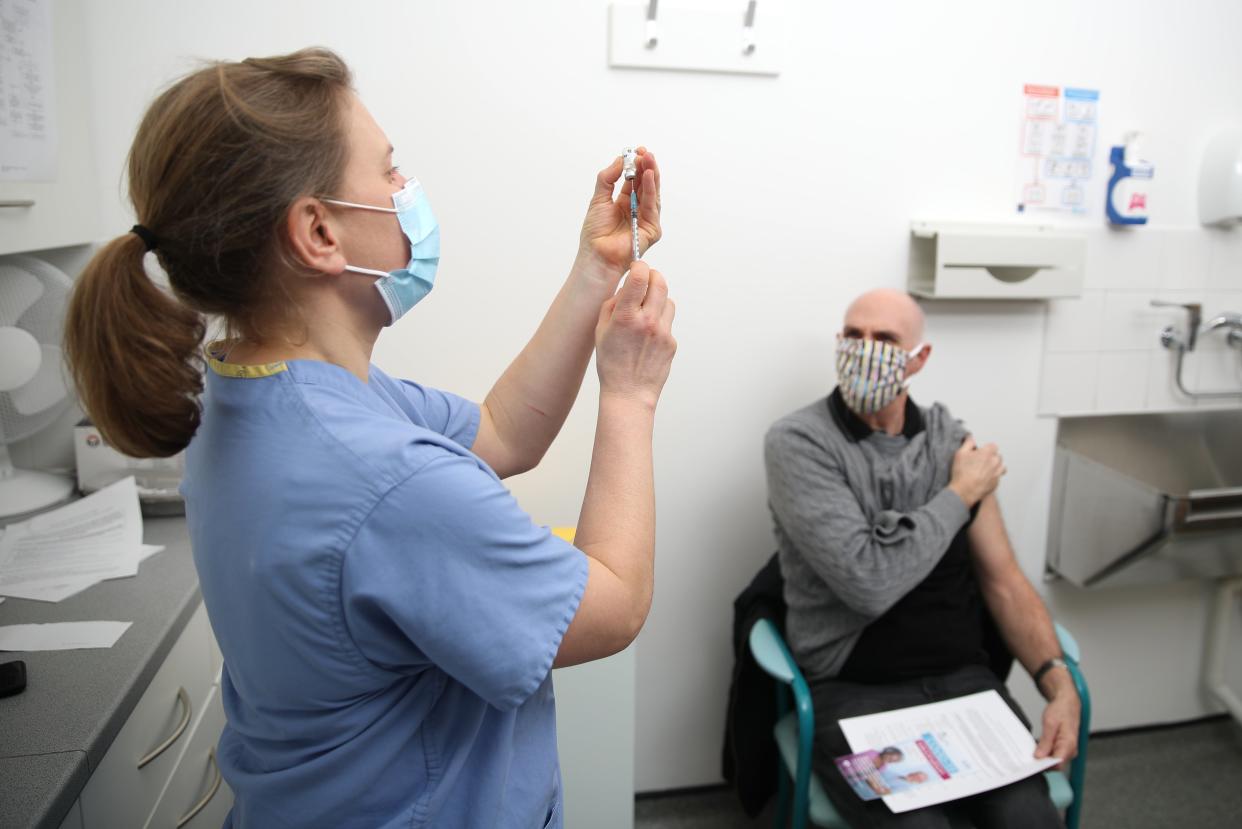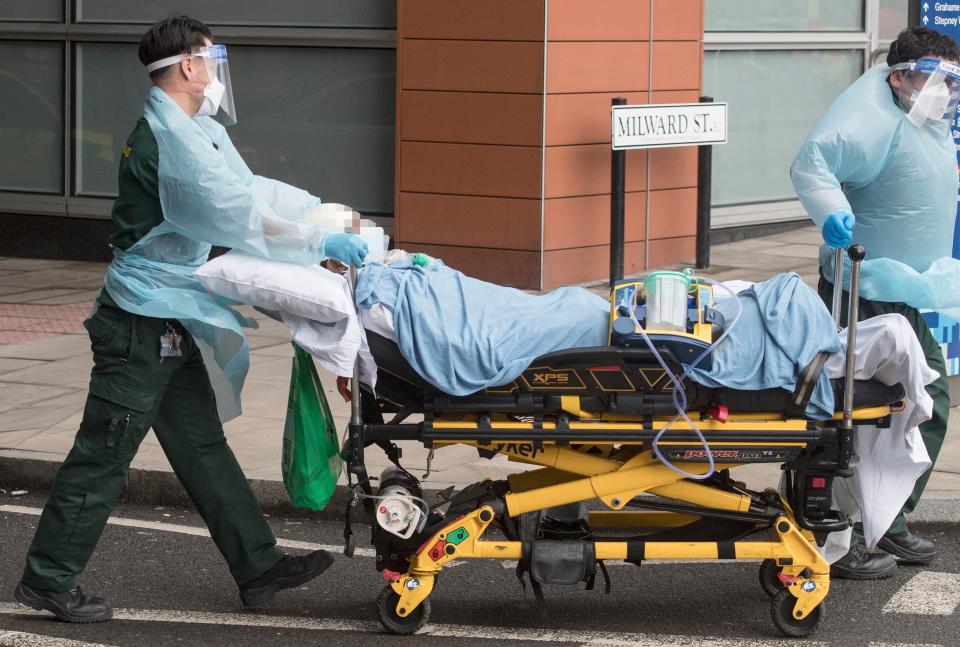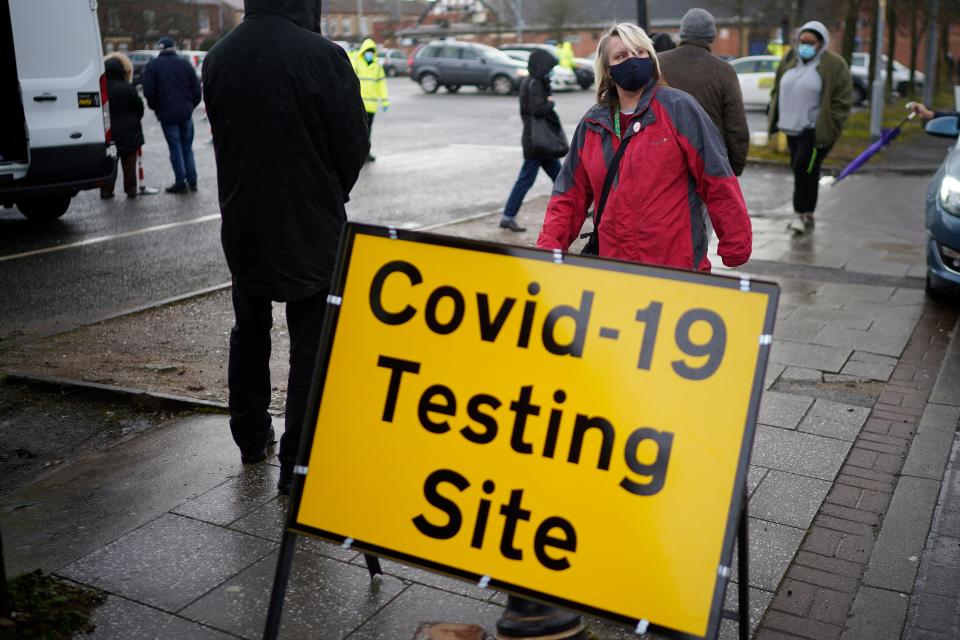What do we know about coronavirus variants as a new strain found in UK?

The UK/Kent variant which was detected here in the UK and was first sequenced in the country in September 2020
(PA)The first cases of a new coronavirus variant first identified in Manaus, north Brazil, have been identified in the UK, health officials have said.
A total of six cases of the new strain have been identified – three in England and three in Scotland.
Although it is not yet known if the mutation causes more severe Covid-19, current evidence suggests it may be more transmissible.
There have been a number of mutations since the virus first emerged in 2019 and experts have been conducting frequent analysis to see which are of concern, and which are not.
But what do we currently know about the different variants?
There are four variants of concern:
- UK/Kent variant: First detected in the UK and was first sequenced in the UK in September 2020 and called B117;
- UK/Kent variant + E484K mutation: This variant was first detected in Bristol and is the UK variant (B117) with a genetic change also found in both the South African and Brazilian variants, E484K;
- South African variant: First detected in South Africa and first sequenced in the UK in December 2020;
- The Brazilian variant: First detected in Japan in travellers from Brazil in January 2021 and has now been detected in the UK;
There is also a variant under investigation, a second variant from Brazil, that has been detected in a handful of cases in the UK, but is not causing scientists serious concern.

What about the variants under investigation?
Scientists are also monitoring four “variants under investigation” (VUI).
PHE revealed that 16 cases of a VUI referred to as VUI-202102/04, were identified through genomic horizon scanning on February 15.
The variant, which is understood to have originated in the UK, was designated a “variant under investigation” (VUI) by PHE nine days later.
All people who have tested positive for the variant, and their contacts, have been traced and advised to isolate.
What do we know about the Brazilian variant?
The P. 1 variant is associated with a surge of cases in Manaus, north Brazil, late last year, which led to a severe second wave of Covid-19.
It was detected there in December, and in travellers from Brazil to Japan, in January.
The first cases of the Brazilian variant of concern have now been detected in the UK, three in England and three in Scotland. The identified cases involved people flying from Brazil to the UK via Paris or Zurich.
Although two were confirmed in South Gloucestershire, the third English case has not been located and could be anywhere in the nation.
Public Health England says the person did not complete their test registration card so their contact details are unavailable - making it difficult to trace them.
Scientists are conducting analysis to establish if the variant has a higher mortality rate or if it affects the vaccines or treatments at all.
Like the South African variant, the Brazilian one carries a mutation in the spike protein called E484K, raising concerns that vaccines may not be as effective against it.

What do we know about the UK/Kent variant?
This variant was first detected in Kent in September, and it has been suggested that its spread in December led to a rapid rise in Covid-19 cases before the second national lockdown was announced in England.
Analysis of the variant, known as B117, suggests it is up to 70 per cent more transmissible than the previous strain that was dominant in the UK.
It is now thought to be the dominant variant in the UK.
A study has suggested that people infected with this variant are less likely to report a loss of taste and smell.

Studies suggest the Oxford/AstraZeneca coronavirus vaccine has a similar efficacy against the variant, compared with the original strain of Covid-19 against which it was tested. Studies also suggest the jab developed by Pfizer and BioNTech is effective against the UK variant of coronavirus.
The Moderna coronavirus vaccine, due to arrive in the UK in the spring, is effective against all emerging mutations of the virus that have been detected to date, according to the company.
What about the UK/Kent variant + E484K mutation?
This variant was first detected in Bristol and a handful of other cases have been identified across the UK.
It carries a genetic change also found in both the South African and Brazilian variants, E484K.
Analysis into this variant is ongoing, and researchers are looking at how vaccines might affect the strain.
What about the South African variant?
The variant was identified by a team of South African scientists in the Eastern Cape province and sequenced in the UK in December 2020.
About 193 cases of this variant have been detected in the UK.
It carries the E484K mutation which experts suggest may be better at evading the human immune response.

The vaccine developed by Pfizer and BioNTech is effective against this variant, according to a study from the US.
However, a separate study found that the Oxford/AstraZeneca jab was not effective at preventing mild illness caused by the more infectious South African mutation.
But the jab will protect against deaths and severe disease amid the spread of the South African variant, according to researchers.
Why do viruses mutate?
There have been many mutations in Sars-CoV-2, the virus that causes Covid-19, since it emerged in 2019, some more significant than others.
However, this is to be expected as this virus is an RNA virus, like the flu and measles, and these tend to mutate and change.
Mutations usually occur by chance, and the pressure on the virus to evolve is increased by the fact that so many millions of people have now been infected.
Sometimes mutations can lead to weaker versions of a virus, and it could even be that the changes are so small they have little impact on how it behaves.
If new variants spread faster it means they are likely to infect more people, increasing the number of cases.
Viruses evolve in order to survive – mutations are a simple mistake that give the virus a chance to keep infecting people.
Read More
EU legal action imminent over UK extension of ‘grace periods’
Three terror attacks foiled since pandemic started, police reveal
Tech investors hail Chancellor’s measures set to ‘bring talent to UK’

 Yahoo Movies
Yahoo Movies 
